MercoPress. South Atlantic News Agency
Mercosur
-
Wednesday, December 18th 2019 - 09:45 UTC
Brazil/China finalizing sanitary protocol for soy-meal exports to the Asian giant
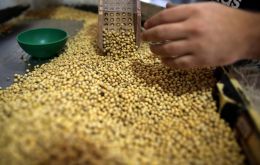
Brazilian and Chinese government authorities are finalizing a protocol setting health standards for domestic processors to export soy-meal to the Asian country, André Nassar, president of oilseeds industry group Abiove, announced.
-
Saturday, December 14th 2019 - 09:40 UTC
Trump and Abdo meet in Washington to talk about the Mercosur-US trade deal
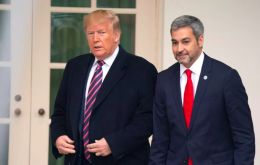
US President Donald Trump and his Paraguayan colleague Mario Abdo Benítez Friday discussed in Washington a free trade agreement with Mercosur as well as other items of mutual interest, including beef import/exports and the crisis affecting various countries in South America.
-
Monday, December 9th 2019 - 09:56 UTC
Brazil will send no delegate to Argentine president Fernandez inauguration, media reports
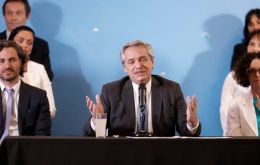
Brazil’s government scrapped plans to send a delegate to Alberto Fernandez’s inauguration ceremony in Argentina, representing an escalation in tensions between South America’s top economies.
-
Friday, December 6th 2019 - 09:50 UTC
Bolsonaro calls on Mercosur for a quick implementation of the trade agreement with the EU

Brazil’s President Jair Bolsonaro said on Thursday that Mercosur trade block needs to hurry up and implement agreements the group has negotiated.
-
Friday, December 6th 2019 - 09:50 UTC
Macri addresses the Mercosur summit for the last time
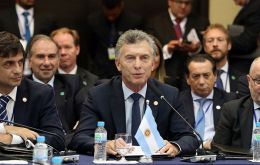
In what was his last international activity, outgoing president Mauricio Macri attended the 55th Mercosur leaders summit in Bento Goncalves, southern Brazil, which he described as a special diplomatic occasion for his administration's strive to put Argentina back in the wide world map.
-
Friday, December 6th 2019 - 09:49 UTC
Paraguay takes the chair of a quarrelsome strained Mercosur
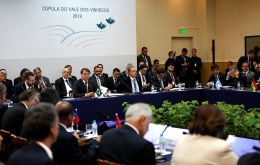
Brazil on Thursday handed over the six-month rotating presidency of the Mercosur trade bloc (Southern Common Market) to Paraguay. During a ceremony at the bloc's 55th summit in Bento Goncalves, Brazil's president Jair Bolsonaro expressed confidence in his Paraguayan counterpart Mario Abdo Benitez and his leadership skills.
-
Thursday, December 5th 2019 - 09:55 UTC
Trump's tariffs puts Brazil's Bolsonaro and Argentine president elect Fernandez in the same boat
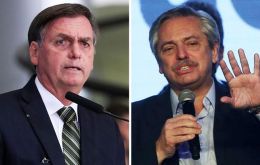
The South American four-nation trade bloc Mercosur began a tense meeting on Wednesday reeling from US steel and aluminium tariffs and a spat between its two biggest members. Foreign ministers of Brazil, Argentina, Paraguay and Uruguay opened the two-day meeting in the southern Brazilian town of Bento Goncalves, paving the way for a head of state summit on Thursday.
-
Tuesday, December 3rd 2019 - 09:50 UTC
Uruguay president elect hopes pragmatism prevails over ideology in Mercosur
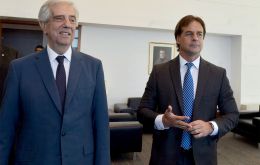
Mercosur faces a tense future, the president-elect of Uruguay said on Monday, referring to a diplomatic spat between regional heavyweight economies Brazil and Argentina. Brazil’s right-wing leader Jair Bolsonaro and Argentina’s incoming leader, left-leaning Peronist Alberto Fernandez, have sparred openly.
-
Tuesday, October 29th 2019 - 09:55 UTC
Alberto Fernandez and Bolsonaro on collision course over Lula and Mercosur

Argentine elected president Alberto Fernandez on Sunday called for ex-president Lula da Silva to be freed from prison, which most certainly puts him on a collision course with Brazil's Jair Bolsonaro.
-
Monday, October 28th 2019 - 16:57 UTC
Bolsonaro hints Argentine might need to leave Mercosur

Brazil's President Jair Bolsonaro said late Sunday upon departing from Abu Dhabi after a two-day state visit that if the policies of Argentina's next president affect Mercosur's agreement with the European Union (EU), a solution may be to remove the southern neighbours from the bloc.
